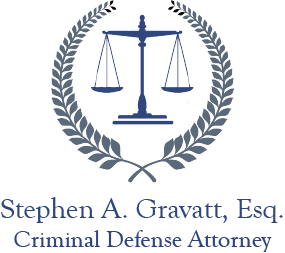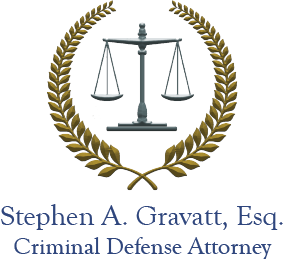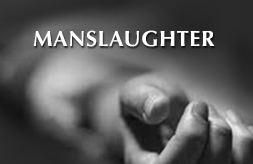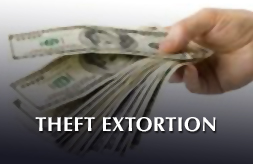
CRIMINAL DEFENSE ATTORNEY DEFENDS CHARGES OF CRIMINAL MISCHIEF—N.J.S.A. 2C:17
Mischief NJ
Stephen A. Gravatt, Esq.
565 NJ 35
Middletown, New Jersey 07748
(732)-337-7922
Email: pipking@comcast.net
WHAT CONDUCT CONSTITUTES CRIMINAL MISCHIEF?
(1) Purposely or knowingly damages tangible property of another or damages
tangible property of another recklessly or negligently in the employment of
fire, explosives or other dangerous means listed in subsection a. of N.J.S.A.
2C: 17-2; or
a. “Offense defined. A person is guilty of criminal mischief if he:
(2) Purposely, knowingly or recklessly tampers with tangible property of another
so as to endanger person or property.
b. Grading.
(1) Criminal mischief is a crime of the third degree if the actor purposely or
knowingly causes pecuniary loss of $2,000.00 or more, or a substantial
interruption or impairment of public communication, transportation, supply
of water, gas or power, or other public service.
(2) Criminal mischief is a crime of the fourth degree if the actor causes pecuniary
loss in excess of $500.00. It is a disorderly persons offense if the actor causes
pecuniary loss of $500.00 or less.
(3) Criminal mischief is a crime of the third degree if the actor damages, defaces,
eradicates, alters, receives, releases or causes the loss of any research property
used by the research facility, or otherwise causes physical disruption to the
functioning of the research facility. The term “physical disruption” does not include any lawful activity that results from public, governmental or research facility employee reaction to the disclosure of information about the research facility.
(4) Criminal mischief is a crime of the fourth degree if the actor damages, removes or impairs the operation of any device, including, but not limited to,
a sign, signal, light or other equipment, which serves to regulate or ensure the safety of air traffic at any airport, landing field, landing strip, heliport, helistop or any other aviation facility; however, if the damage, removal or impediment of the device recklessly causes bodily injury or damage to property, the actor is guilty of a crime of the third degree, or if it recklessly causes a death, the actor is guilty of a crime of the second degree.
(5) Criminal mischief is a crime of the fourth degree if the actor interferes or
tampers with any airport, landing field, landing strip, heliport, helistop or any other aviation facility; however if interference or tampering with the airport, landing field, landing strip, heliport, helistop or other aviation facility recklessly causes bodily injury or damage to property, the actor is guilty of a crime of the third degree, or if it recklessly causes a death, the actor is guilty of a crime of the second degree.
(6) Criminal mischief is a crime of the third degree if the actor tampers with a
grave, crypt or mausoleum or other site where human remains are stored or
interred, with the purpose to desecrate, destroy or steal such human remains or any part thereof.
c. A person convicted of an offense of criminal mischief that involves an act of
graffiti may, in addition to any other penalty imposed by the court, be required to
pay the owner of the damaged property monetary restitution in the amount of the
pecuniary damage caused by the act of graffiti and to perform community service,
which shall include removing the graffiti from the property, if appropriate. If
community service is ordered, it shall be for either not less than 20 days or not less
than the number of days necessary to remove the graffiti from the property.
d. As used in this section:
(1) “Act of graffiti” means the drawing, painting or making of any mark or
inscription on public or private real or personal property without the
permission of the owner.
(2) “Spray paint” means any paint or pigmented substance that is in an aerosol or
similar spray container.”
WHAT ARE THE CONSEQUENCES IF CONVICTED OF CRIMINAL MISCHIEF?
If you are found to have acted “purposefully” because it was your conscious object to deliberately damage property valued at more than $500.00 you knew belonged to somebody else, you would be guilty of a 3rd degree offense. N.J.S.A. 2C:2-2(b)(1), State v. Clarke, 198 N.J. Super 219 (App. Div. 1985). Of course had you acted “knowingly”, e.g., with knowledge that your conduct would result in damage to property valued at more than $500.00 belonging to somebody else, N.J.S.A. 2C:2-2(b)(2), you would also be guilty. Ortiz v. Ortiz, A-1742-06T31742-06T3 (App. Div. 2007) A third degree crime is punishable, if convicted, by monetary fines of up to $10,000.00, plus possible jail time of a low of three (3) years and a high of five (5) years, and a criminal record. N.J.S.A. 2C:43-3(b)
If you deliberately damaged property of another valued at less than $200.00 the offense would be charged as a disorderly persons offense. If convicted, your exposure would be a monetary penalty-fine of up to $1,000.00 plus possible jail time from 0 days up to 180 days plus a criminal record for a criminal disorderly persons offense plus restitution to the victim.
WHAT IS MY EXPOSURE IF THE VICTIM IS MY SPOUSE UNDER THE PREVENTION OF DOMESTIC VIOLENCE ACT?
If you deliberately damage (what you thought was your proprerty), e.g.,during a marital dispute or argument, you may have committed criminal mischief because under a domestic violence analysis the property is “marital property”, and therefore your conduct constitutes an act of domestic violence under the Domestic Violence Act, e.g., N.J.S.A. 2C:25-1, et seq.. Pursuant to that act a municipal court judge sitting in the township in which you reside has the authority to issue temporary restraining orders (TRO) when the Superior Court, Family Part, is not open, e.g., on week ends, holidays, etc…Your significant other could avail himself or herself of the remedy of obtaining a TRO. This is a remedy designed to prevent the defendant from having any verbal or physical contact with the victim and/or victim’s immediate family members residing in the marital residence. This is accomplished by ordering the defendant not to go within 500 feet of the marital residence until such time as the Order is dissolved. In other words, you must live somewhere else and you cannot have any direct or indirect communication or contact with your spouse or you would be committing a willful violation of a court order—a fourth degree crime punishable by possible jail time up to eighteen (18) months. Additionally, a search of the marital residence for weapons will be conducted by local police and confiscation of any guns found will be imposed. Your first court appearance would be an arraignment in the municipal court which issued the TRO. Approximately two (2) weeks after issuance of the TRO you would be given an opportunity to defend yourself at a Plenary Hearing in which the issue is whether the TRO should ripen into a Final Restraining Order (FRO), in the Superior Court, Family Part, or whether the TRO should be dissolved (dismissed) on grounds that your conduct did not constitute “domestic violence” within the meaning of N.J.S.A. 2C:25-1. If the matter is converted to a FRO you could be ordered to continue paying the roofing costs, e.g., mortgage, property taxes, utilities, etc…until the marriage is legally dissolved, without the possibility of ever being able to lawfully set foot on the property again or communicate with your spouse ever again. Finally, the municipal court may hear the underlying charges (if not indictable) and have jurisdiction over the underlying offense. Additionally, if your spouse wants the TRO dissolved, you can be ordered to undergo expensive and time consuming anger management or psychological counseling as a prerequisite to any reconciliation and/or normalization of property rights.
DO I NEED TO RETAIN AN ATTORNEY TO DEFEND ME FOR CRIMINAL MISCHIEF?
Yes. I would recommend it. Money is fungible. A criminal record is not. A conviction on your criminal history can make you ineligible to secure employment from government and or prevent you from securing licence from professional boards. If you are currently employed as a school teacher, or other government official you could be permanently terminated from your position.
If you have been charged with criminal mischief, particularly if the property you have damaged is valued at $500.00 or more, this is a serious situation. Please call me for your free initial consultation and a no nonsense discussion about how I can help you.
Stephen A. Gravatt, Esq.
(732)-337-7922
www.njdwicriminaldefenseattorney.com




